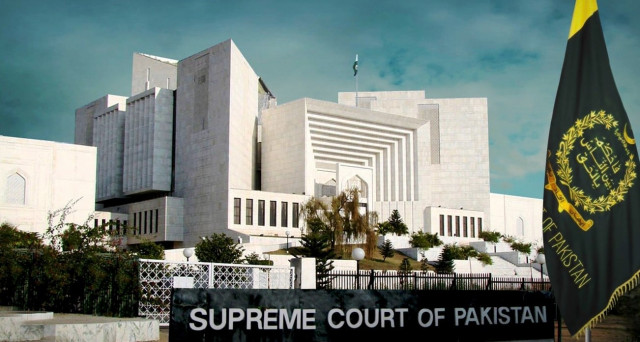SC admits review petitions against verdict granting reserved seats to PTI
The court issues notices to all concerned parties while proceedings were marked by probing questions and sharp remarks

The Supreme Court of Pakistan on Monday admitted for preliminary hearing the review petitions filed against its earlier verdict that had granted reserved seats to the Pakistan Tehreek-e-Insaf (PTI).
The court issued notices to all concerned parties while the proceedings were marked by probing questions and sharp remarks from the bench, Express News reported.
A 13-member bench, headed by Justice Aminuddin Khan, presided over the hearing. It included Justices Jamal Khan Mandokhail, Muhammad Ali Mazhar, Ayesha Malik, Hasan Azhar Rizvi, Naeem Akhtar Afghan, Musarrat Hilali, Hashim Kakar, Shahid Bilal, Salahuddin Panhwar, Aamer Farooq, and Baqar Najafi.
During the hearing, Pakistan Muslim League-Nawaz’s (PML-N) counsel Haris Azmat argued that reserved seats were allocated to a party that was not even a respondent in the original case. Justice Ayesha countered that this issue had already been addressed in the court’s earlier decision, questioning the grounds for the review.
Justice Mandokhail noted that the bench had both the Returning Officers’ orders and the Election Commission’s decision before it during the original case. Responding to Azmat’s argument that PTI failed to challenge these orders, he asked, “Should the nation bear the consequences of one party’s legal mistake?”
Justice Ayesha stressed that the original judgment was based on a comprehensive hearing of all arguments. Justice Abbasi criticised the petitioners for repeating their original arguments without presenting valid grounds for review. “You are not identifying any errors in the verdict,” he said.
When questioned about the implementation of the Supreme Court’s ruling, Azmat said he was unaware, prompting Justice Malik to question the enforceability of judicial decisions.
The Election Commission’s counsel, Sikandar Bashir Mohmand, admitted partial compliance with the verdict. Justice Mandokhail expressed concern over selective implementation, drawing a harsh analogy: “If the Supreme Court imposes a death sentence, would partial implementation mean placing the noose but not completing the execution?”
Justice Abbasi further questioned whether the petitioners intended to educate the court, asking for arguments specifically under Article 188, which governs the scope of review.
The court also scrutinised the Election Commission’s status in the review, with Justice Malik questioning how an institution tasked with conducting elections could act like a party in the case. She remarked, “You didn’t like the constitutional interpretation, so you’ve returned with a review?”
Justice Kakar asked whether the Commission had complied with the ruling in full, warning that partial implementation casts doubt on the authority of future court decisions. Justice Malik added that the ECP cannot “pick and choose” which parts of a verdict to follow.
Mohmand defended the ECP’s position, saying PTI was not a party in related cases before the Peshawar High Court. Justice Abbasi pointed out that a contempt petition against the commission was already pending and that their partial implementation could justify contempt proceedings.
As tensions rose, Mohmand accused the bench of forming opinions prematurely, to which Justice Malik firmly replied, “Don’t tell me what I should think.”
The hearing was adjourned until 11:30 am the following day. A majority of 11 judges approved the review petitions for preliminary hearing and issued notices to respondents. However, Justices Ayesha and Abbasi dissented.
Justice Ayesha declared the review petitions inadmissible and stated she would issue a detailed note outlining her reasoning. Justice Abbasi agreed with her stance.

























COMMENTS
Comments are moderated and generally will be posted if they are on-topic and not abusive.
For more information, please see our Comments FAQ